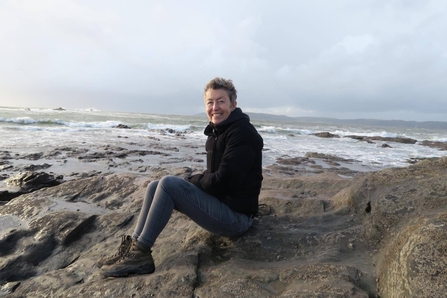It’s hard to argue that the benefits of healthy, abundant wildlife and wild spaces should not be taken seriously. Given the current state of our natural world, and the fact that the UK is still one of its most nature-depleted countries, it feels ever more critical to ensure the threats are also given full consideration. As a federated movement of 47 independent organisations, The Wildlife Trusts are proud of our reputation as a voice for nature. Having recently aligned under our new strategic framework, we have a new opportunity to speak with a stronger, bolder, more confident tone of voice – both locally and collectively.
So, what does ‘being bold’ mean to us? How are we making sure we’re ‘match fit’ for the challenges that nature faces now, and will certainly face in the future?
Being ‘bold’ isn’t about being the loudest or showiest
To The Wildlife Trusts, ‘bold’ means staying consistent in our messages, confident in our values, and committed to our purpose – not chasing publicity or headlines for their own sake.
We don’t want to be the lone voice. We want to help our members, volunteers, and the communities where we work to have those conversations too so they become part of the fabric of national debate. Regardless of the different hats we all wear – nature-lover, land manager, decision-maker, parent, consumer, friend, and more – we each have a responsibility and all the tools we need to see, and be, the change. After all, people are a part of nature too; people need nature and nature needs us.
Being bold isn’t always comfortable
For us, being ‘bold’ means being unafraid to have difficult conversations, knowing what we say is evidence-based and not simply opinion.
Sometimes that means difficult conversations with decision-makers, like politicians. We have been bold about publicly challenging the UK and devolved Governments on the need to take greater, more urgent, and integrated action to tackle the nature and climate crises together. We cannot restore nature without mitigating and adapting to climate change, and we cannot achieve either of these without restoring nature.
We have challenged on the international stage at COP27 and domestically on the UK’s Net Zero Strategy. We have demanded that businesses, land managers, and farmers should be properly supported to reduce their own emissions and transition to more nature-friendly practices, in order to build their resilience to climate change. We demand this – and will continue to do so – because that’s what has been repeatedly, publicly promised to them.
Sometimes it means having difficult conversations with our closest supporters. Today we are almost one million members strong – every one of them different. We have roots in local, diverse communities – from countryside villages to urban hubs to coastal communities. Most of our members agree with every one of our collective positions; some won’t. Many thousands will actively stand beside us; thousands more want us to get on with the job and are just happy to support us so we can. The same goes for our partners, and funders, too.
As a lot of our sector friends will know it’s not pleasant to publicly disagree with the people and groups we rely on, or which might otherwise consider us allies. I know none will underestimate how difficult it can be to call out broken promises or missed opportunities in the face of so many other pressures society is dealing with. It’s not fun to spotlight poor practice, especially when it comes from a fundamentally good but perhaps misguided place.


